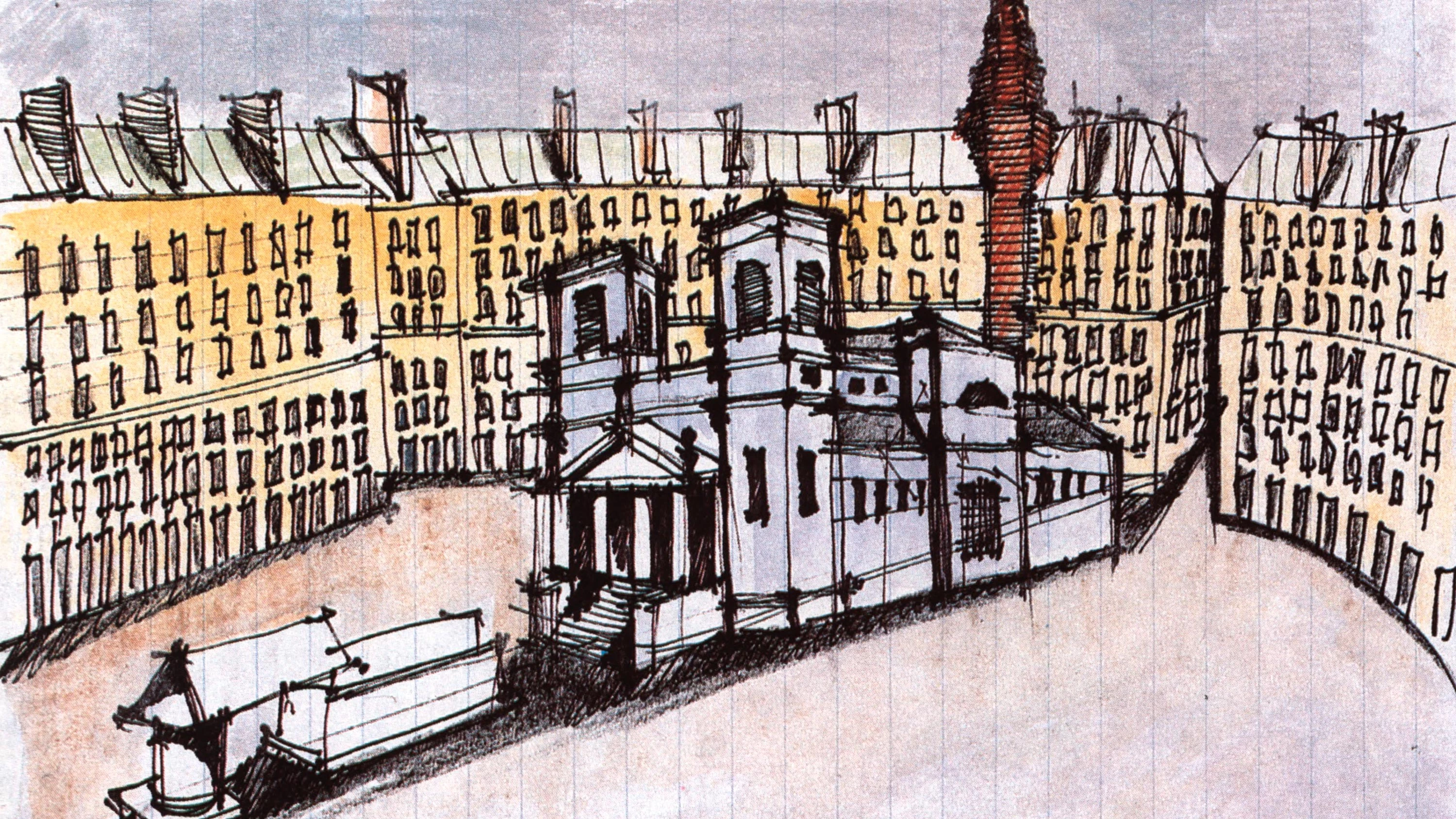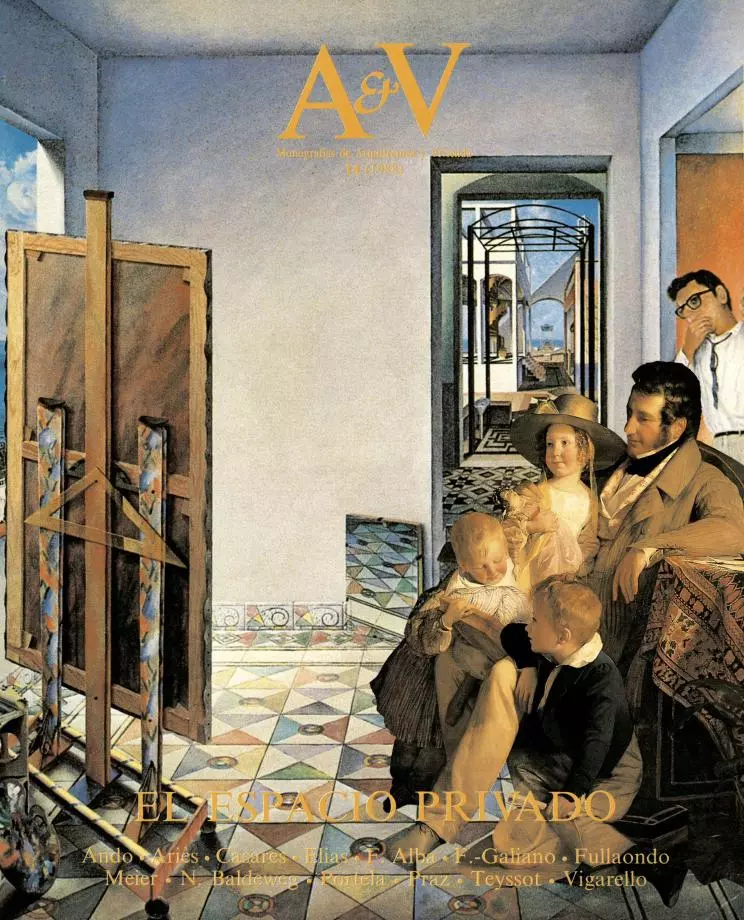
Aldo Rossi, Plaza en Nantes, 1985.
Already in the 18th century, architects’ activities were divided between the public and the private spheres. Ideas of how to regulate intimate spaces in the domestic sphere began taking form, but nonetheless the private was entirely subordinate to the public throughout the Enlightenment. Georges Teyssot bases the following piece on the idea that architecture is the expression of an order, and then tries to dissolve the rigid classical dichotomy and show how this dissolution can affect the private sphere.
Before defining the models of life that have dominated Western civilization we must consider, albeit briefly, the object of our study (the house) and the juridical and institutional scope of the places we live in (the private sphere) and then ask a question which may appear out of place: When we think today about «house architecture» as something with its own characteristics, are we entirely sure that the house is architecture? What we are asking is i f there has always been (and i f there is today) a perfect concordance, a geometric superposition, between the field of designs for one or more houses and that of the architectural discipline. Two traditions — one old, the other new, both by now consolidated in a true doxa— would confirm such a concordance. On the one hand we have Vitruvius, who traced the origins of architecture to the huts of the first men at the dawn of civilization, thus linking the legend of the genesis of architecture with the foundation of the domus; and on the other hand we have the «modern» architectural tradition, in which the study and planning of the residential function of human habitats has nearly monopolized all design efforts and almost all the textbooks, from com position manuals to guides to residential standards in all countries of the world, be they developed or not... [+]






